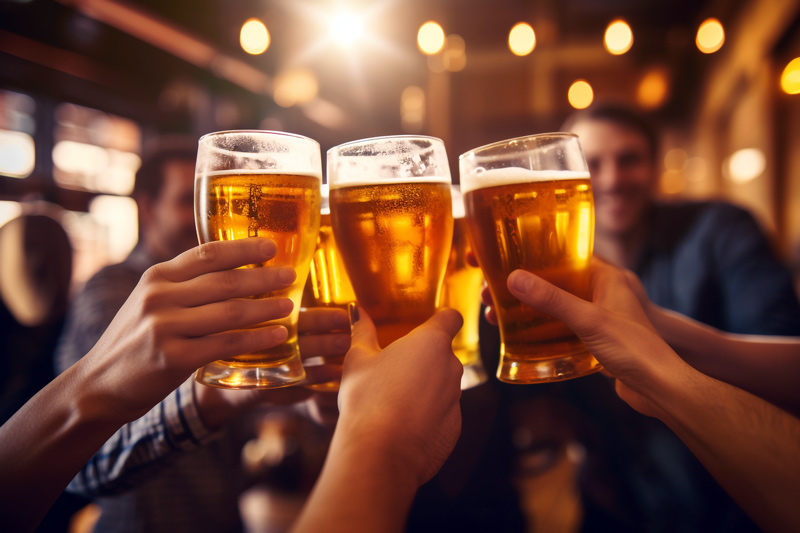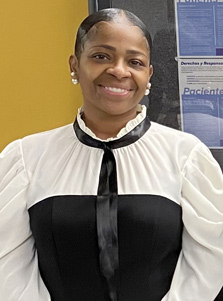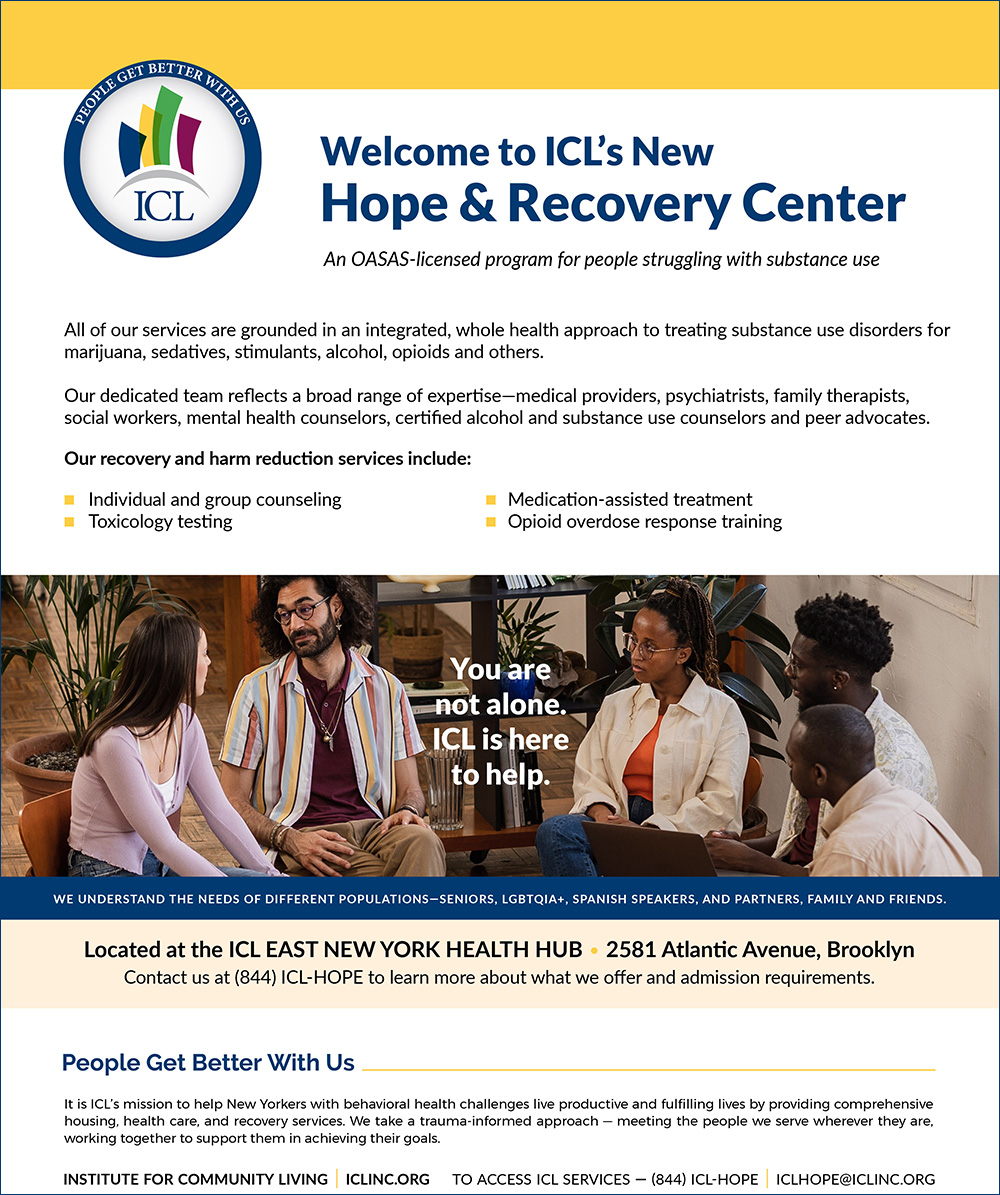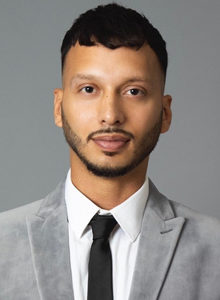I’m sure many of us reading the words “Happy Hour” get a little excited: as a time to socialize, network, and let loose. For some, it’s a chance to be an extrovert – while an invisible cloak helps suppress insecurities, fears, and worries. For many, in fact, happy hour is not really very happy. Instead, it often serves as an escape from a grueling current reality or long-ago experiences of pain and anguish.

Substance use occurs at different levels. Many of us are familiar with happy hour as a single event you take part in once in a while – what happens when it’s an almost-every night occurrence? Or when we go way past that “hour” – make a night of it and discover the next morning many unexplainable charges in your bank account; or you’re getting into work late more and more, feeling crappy because your body is still intoxicated the following day or you’re getting more irritable with others?
This is when we know happy hour is no longer very happy – it goes from “fun and games” to something increasingly unhealthy.
Of course, we all have unhealthy habits, right? Or aren’t living our healthiest life. How many times have you made plans to go to the gym weekly but only made it a few days out of the year? I’m raising my hand.
How many of us announced we’d get rid of soda or cut back on social media usage? How many of you have fallen in love only to see the relationship become toxic – yet you stayed? Love can turn into an addiction – like all addictions — that is very difficult to break.
What if I told you that substance use, especially one that has gone on for years, has actually kept people alive? Has been a supportive “friend” and sometimes has felt like a life saver. I know many people whose substance use has enabled them to live through longstanding trials and tribulations. For these survivors, without substances, those negative experiences would have been too overwhelming, they would have drowned in their sorrows.
Change isn’t easy regardless of how much we know we need to make changes.
That’s where meaningful and accessible help comes in and where we at Institute for Community Living (ICL) come in.
Not only do we have specific services to support people in breaking their addictions (see sidebar on our new Hope & Recovery Center) but like all of our work, our addiction services are grounded in a fundamental understanding about the importance of human connection. As humans, connecting with others is an innate need and desire. At ICL, this understanding translates into working together to help a person believe again in themselves and remember the experience of joy.
Making this human connection plays a critical part in the journey from substance use gone wrong to full health and recovery. But it can be easily overlooked by a culture that assumes a substance use problem – and dealing with it – as a person’s individual “choice.” We tend to keep our distance, both in our professional and personal lives. Witnessing addiction can activate our moral compass, we pass judgment and forget that in a variety of ways, we all have unhealthy habits or addictions that can easily grow out of control.
People presenting with substance use issues are often viewed as “sinners” which somehow justifies the consequences that are imposed such as very high (and automatic) prison sentences for possession of insignificant amounts of a substance. This further marginalizes people – feelings of isolation and powerlessness take over and can worsen their addiction. We’re punishing, instead of helping – so contrary to how we generally respond to people struggling with other medical conditions.
And our profession is not always ready with open arms to help. When a physical health or mental health provider learns that someone referred to their organization is struggling with substance use, they generally assume the person will require a higher level of care and is not “appropriate at this time” for their service. Even our licensing exams require that we bypass engagement and immediately send people showing signs of addiction to detox or a hospital when they may well not be ready for either of those intensive settings.
The stigma around substance use is so great that a very small percentage of behavioral health workers dedicate their careers to its treatment; as a result, resources are few and far between compared to other areas of physical and mental health.
Why is this such a common reaction, even for practitioners otherwise compassionate and ready to take on a myriad of challenges? The explanation starts with a lack of understanding about trauma and the critical importance of hope in successfully overcoming addiction.
I am proud to be part of the leadership team at ICL, an organization whose work is centered in trauma treatment and the many and varied factors that shape a person’s life. Throughout the organization’s more than 125 programs, this approach is grounded in a whole health model and principles referred to as TRIP – trauma-informed, recovery-oriented, innovative, and person-centered.
What this approach reflects – so important in addressing all health issues but especially in the realm of substance use – is an understanding of all factors (micro, mezzo, and macro) that lead to unhealthy substance use and utilizes practical and meaningful resources to move forward. At ICL and in particular in our East New York Health Hub where a full array of integrated services are available — we’re looking beyond an individual’s physical/mental health needs and at how Social Determinants of Health i.e. housing, food security, education and/or employment, and social network have brought the person, their natural supports and community to this point. That understanding is incorporated into a recovery plan and the full array of services offered. As a result of the organization’s implementation of the whole health model, our Health Hub, just five years since opening, is one of the nation’s most comprehensive health centers and has proudly added a state-licensed substance use disorder clinic to our mix of services.
We have the tools to treat substance use and addiction, but we have to find the will – and the resources – not only to offer more of it to the people who need it but provide it in the most effective way possible. At ICL, our integrated approach supports us as practitioners to help individuals confront – and overcome – even the most seemingly intractable challenges.
Jose Cotto, LCSW, is Senior Vice President for Residential Treatment at Institute for Community Living (ICL).
ICL Hope & Recovery Center Offers a Brighter Future
Earlier this year, ICL proudly opened the Hope & Recovery Center, an outpatient substance use disorder treatment and recovery program. A crucial component of our whole health service at the ICL East New Health Hub, the Center is an OASAS-licensed clinic offering a wide range of recovery and harm reduction Services.

Drucilla Williams
The Hub offers integrated physical and mental health care, as well as resources for families and children, such as a food pantry and art studio, all under one roof. Now, individuals coming to the Hub can receive substance use disorder treatment along with primary care, psychotherapy, medication management, social rehabilitation, and more.
The need for substance use disorder treatment has never been greater. Many people struggled with isolation and anxiety during the pandemic, exacerbating mental health and substance use difficulties. The overdose crisis has reached historic levels—2,668 individuals died of a drug overdose in New York City in 2021, an increase of 78 percent since 2019 and 27 percent since 2020. Alcohol-related deaths increased by 25 percent nationwide from 2019 to 2020.
To address these troubling trends, the Hope and Recovery Center offers trauma-informed interventions based on each person’s needs and goals. Clients can access medication-assisted treatment; a variety of counseling services, including for family members and partners; overdose prevention training, and more. Everything at the center happens in a compassionate, safe, and nurturing environment.
“Often those we work with at ICL are high-need individuals who may struggle with multiple challenges, such as mental health and substance use, and they often face increased barriers to accessing care,” said Jody Rudin, President and CEO of ICL. “With the Hope and Recovery Center, people now have a place to go for direct, coordinated support in their recovery journey. The Center reflects ICL’s commitment to integrated, whole-person care focused on addressing an individual’s physical, mental, and social well-being.”
The Center’s dedicated team of professionals has a wide range of expertise. There are medical providers, psychiatrists, family therapists, licensed social workers, licensed mental health counselors, certified alcohol and substance abuse counselors, and peer advocates, all working in coordination to help patients achieve lasting changes.
“Hope is the most important thing for people recovering from a substance use disorder. Our goal at the Hope and Recovery Center is to work with each participant to create individualized plans to meet them where they are in their own recovery journey,” said Drucilla Williams, vice president for addiction services. “Recovery is seldom a linear path and can look different for everyone.”
To learn more about the Hope & Recovery Center and all ICL services contact us at (844) ICL-HOPE or email iclhope@iclinc.org.





